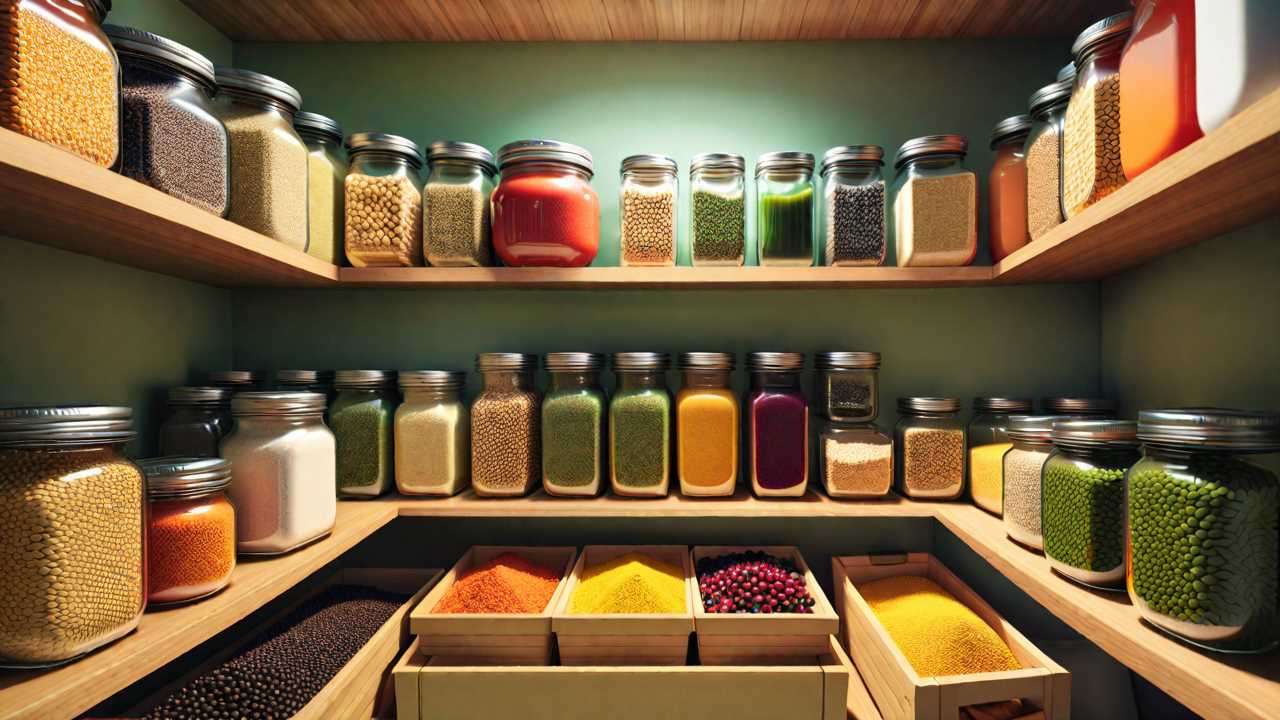Health
How Can I Start a Gluten-Free Diet?

When starting on a gluten-free diet, think of it as a journey to unravel the hidden gluten strands in your daily meals. But, where do you begin? Well, imagine a world where gluten-free living is not just a trend but a necessity for your health. Now, picture yourself confidently exploring grocery aisles, deciphering labels, and savoring delicious gluten-free dishes. Let’s unravel the mysteries of gluten-free living together, starting with the essential steps that will set you on the path to a healthier you.
Understanding Gluten and Its Effects
To fully comprehend the impact of gluten on your health, it’s vital to understand its role in the body and the potential effects it can have on individuals with gluten sensitivities. Gluten is a protein found in wheat, barley, and rye.
In some people, consuming gluten can trigger an immune response that damages the lining of the small intestine. This condition, known as celiac disease, can lead to various symptoms like diarrhea, bloating, fatigue, and nutrient deficiencies.
Additionally, some individuals may experience non-celiac gluten sensitivity, where gluten consumption can cause similar symptoms to those with celiac disease but without the immune system attacking the intestine.
For those with gluten sensitivities, avoiding gluten-containing foods is important to prevent these adverse effects. By understanding the role of gluten in the body and how it can impact your health, you can make informed decisions about your diet to promote overall well-being and manage any gluten-related conditions effectively.
Clearing Out Your Pantry
Why is it essential to thoroughly clear out your pantry when starting a gluten-free diet?
When starting on a gluten-free journey, it’s vital to create a safe environment in your kitchen to prevent cross-contamination and accidental gluten consumption. By clearing out your pantry of gluten-containing products, you eliminate the risk of using them inadvertently in your meals. This proactive step sets the foundation for a successful transition to a gluten-free lifestyle.
To begin, carefully read labels and check for hidden sources of gluten in your pantry items. Items such as soy sauce, condiments, and processed foods may contain gluten, so it’s crucial to scrutinize each product. Next, remove any products that contain wheat, barley, rye, or their derivatives. Consider donating unopened items to minimize waste and support those in need.
Organize your pantry with gluten-free alternatives, such as rice, quinoa, gluten-free oats, and certified gluten-free products. Separate gluten-free items from those containing gluten to avoid confusion.
Planning Gluten-Free Meals
Facilitate successful adherence to a gluten-free diet by strategically planning your meals with gluten-free ingredients and recipes. When planning your meals, focus on naturally gluten-free foods like fruits, vegetables, lean proteins, dairy, and gluten-free grains such as quinoa, rice, and oats.
Utilize online resources, cookbooks, and reputable websites to discover delicious gluten-free recipes that suit your tastes and dietary needs.
To guarantee your meals are truly gluten-free, carefully read food labels and be aware of hidden sources of gluten such as soy sauce, marinades, and processed foods. Consider batch cooking and meal prepping to save time during busy weekdays.
Additionally, when dining out, research restaurants that offer gluten-free options or call ahead to inquire about their menu.
Remember to vary your meals to ensure you’re getting a wide range of nutrients. Incorporate colorful fruits and vegetables, whole grains, and protein sources into your meals.
Navigating Social Situations
When maneuvering social situations while following a gluten-free diet, it’s important to be prepared and advocate for your dietary needs to guarantee a safe and enjoyable experience.
Communicate with your host or the restaurant in advance about your dietary restrictions. Politely explain the importance of avoiding gluten due to health reasons, ensuring they understand the severity of cross-contamination. Offer to bring a gluten-free dish to share, ensuring you have a safe option to enjoy.
When attending gatherings, opt for naturally gluten-free foods like fruits, vegetables, nuts, and proteins. Be mindful of shared serving utensils that may have touched gluten-containing foods.
If dining out, research restaurants that offer gluten-free options or call ahead to inquire about their menu. Inform your server about your dietary needs, asking about ingredients and food preparation to avoid accidental gluten exposure.
Remember to stay confident in advocating for yourself while being respectful of others’ efforts to accommodate your gluten-free requirements.
Frequently Asked Questions
Can I Still Eat Out at Restaurants on a Gluten-Free Diet?
You can still eat out at restaurants on a gluten-free diet. Look for places with gluten-free menus or options. Communicate your dietary needs clearly to the staff. Be cautious of cross-contamination and ask questions about food preparation.
Are There Any Hidden Sources of Gluten in Medications?
When it comes to medications, it’s important to be cautious as some may contain hidden sources of gluten like fillers or binders. It’s vital to consult with your healthcare provider or pharmacist to confirm that your medications are gluten-free and safe for you.
How Can I Ensure I’m Getting Enough Fiber on a Gluten-Free Diet?
To guarantee you’re getting enough fiber on a gluten-free diet, focus on whole foods like fruits, vegetables, legumes, nuts, and gluten-free grains such as quinoa or brown rice. Consider supplements if needed.
Can I Still Enjoy Alcoholic Beverages on a Gluten-Free Diet?
You can still enjoy alcoholic beverages on a gluten-free diet. Stick to spirits like vodka, gin, and tequila, or opt for gluten-free beers and ciders. Just be cautious of flavored options that could contain gluten.
Is It Necessary to Consult a Dietitian When Starting a Gluten-Free Diet?
When beginning a gluten-free diet, consulting a dietitian can be helpful. They provide personalized guidance, guarantee nutritional balance, and help navigate potential pitfalls. Their expertise can make the transition smoother and improve your overall health.

Hello there! I’m Jeremy Ramirez, your go-to guy for all things content marketing and social media at NewsScroller. Currently residing in the vibrant city of Omaha, NE, I’m living my dream of combining my passion for journalism with the dynamic world of digital media.
I’m a proud graduate of the University of Nebraska, where I honed my skills and earned a degree in journalism. My college days were filled with endless learning, coffee-fueled study sessions, and the excitement of discovering the power of storytelling.
Post-graduation, I found my calling at NewsScroller, where I currently lead a team of creative minds in shaping compelling content strategies. Every day is a new adventure here – crafting stories, analyzing trends, and engaging with our vibrant online community.
When I’m not immersed in the digital world, you’ll find me cherishing moments with my amazing wife and our two energetic boys. Our family is completed by Dagwood, our adorable Pug, who always brings smiles to our faces.
Traveling is my escape and inspiration. I love exploring new cultures, tasting local cuisines, and capturing memories through my lens. As a speaker at social media events, I enjoy sharing insights and learning from fellow enthusiasts.
Curious about content marketing strategies or the latest social media trends? Or maybe you want to exchange travel stories? Feel free to reach out. I’m always up for a chat and eager to connect with like-minded individuals. Let’s navigate the exciting world of digital media together!
Want to know more or say hi? Drop me a message anytime!

